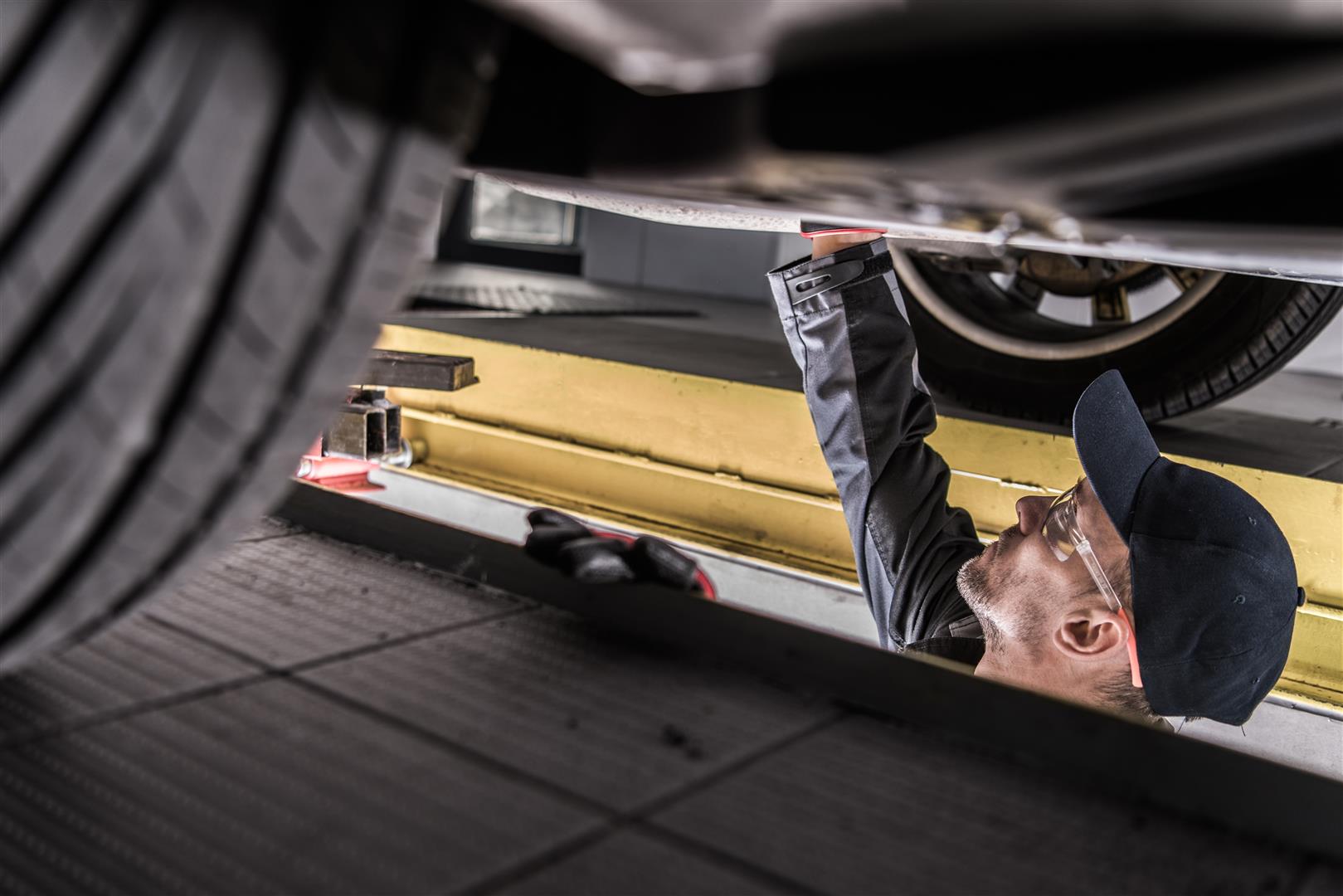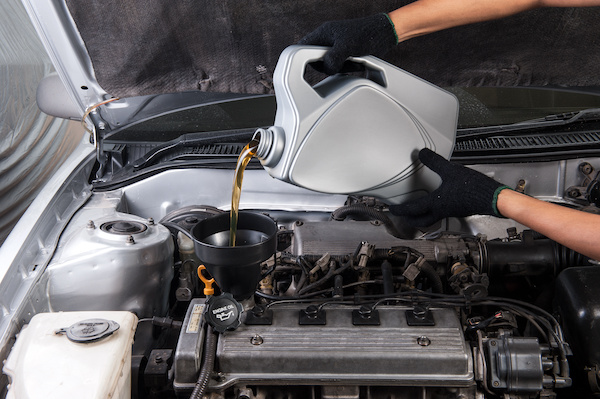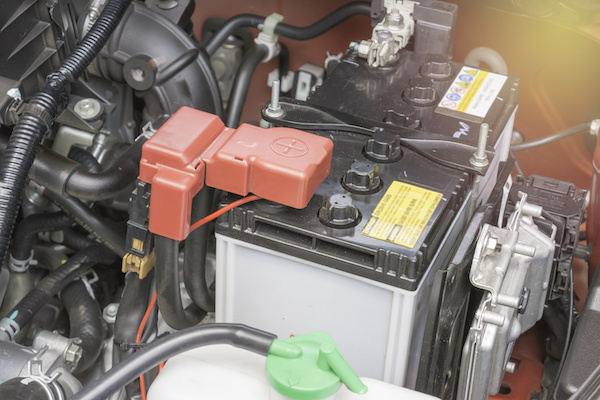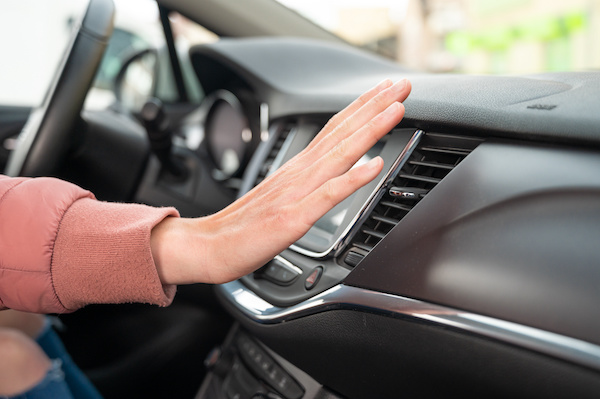Posted on 12/30/2022

The sun is always shining in Kaneohe, which means many of us are still blaring our car’s air conditioning in December. And without working A/C, your car rides can quickly turn miserable. Auto A/C is no longer a luxury but an essential for Hawaii drivers. Auto air conditioning systems have evolved and become more complex as technology improves. If you want to stay comfortable in your ride, make sure to repair any A/C problems you may have. Below are some of the most common problems and indications that you need A/C repairs: Weak Airflow Most cars nowadays allow you to precisely control the temperature and airflow of their air conditioning system. If you turn on your A/C to only be met with little to no airflow coming out of the car vents, then you likely have an air conditioning problem. This can be attributed to a hose or fan problem, but it is best to take your car to Willy's Transmission & Air Conditioning for accurate inspections and repai ... read more
Posted on 11/30/2022

A drivetrain is often the most confusing and underlooked part of the automobile. This problem stems from various factors, including how the term drivetrain often gets confused with driveline and powertrain. The drivetrain is a broad term that comprises major components including the transmission, axles, and wheels. These parts work together to play a major role in propelling your vehicle and controlling torque or turning force. What Are the Main Parts of A Drivetrain? Transmission - Responsible for transferring engine power to the driveshaft. Wheels - Structured to support the weight of the vehicle and produce motion to move the vehicle. Driveshaft - A steel tube that connects the transmission and wheels Universal Joint - A flexible pivot point that is used to transmit rotary motion. Constant Velocity Joints - A part of the driveshaft designed to bend in different directions while turning the wheels. Differentials - Splits engine power and allows wheels to turn at different RPMs ... read more
Posted on 10/31/2022

Regular maintenance is crucial for any vehicle if it is to run optimally. There are several types of maintenance schedules for vehicles with one of them being the factory scheduled maintenance also known as 30/60/90k vehicle maintenance. It means that you schedule maintenance for your car every 30,000 miles so at 60,000 miles and 90,000 miles and so forth. Most drivers and car owners ignore 30/60/90k vehicle maintenance because the car may still be running smoothly after 30,000 miles. However, factory scheduled maintenance can help your vehicle be in the best shape and avoid the cost of repairing or replacing parts. Importance of Factory Scheduled Maintenance Following the factory scheduled maintenance or servicing your car every 30,000 miles is crucial for several reasons. For starters, some companies will consider the warranty void if you do not follow the 30/60/90k maintenance schedule. Therefore, following the schedule may help you use your warranty. Following the factory's ... read more
Posted on 9/29/2022

On average, a car battery should last approximately 3 to 5 years. Beyond this time window, batteries should be monitored more closely as they become more unreliable and prone to dying. In fewer cases, some vehicle owners may have to replace their vehicle’s battery sooner than 3 years. Considering your battery is where all of the electrical power is stored in your car, you should know how to spot the signs of a dead battery. 5 Ways to Tell If You Need a Car Battery Replacement Half-functioning Accessories - A good method to check your battery is to check how your accessories run right after your car starts up. For example, see if your headlights are dim. Rev your engine to see if the lights react differently. If so, it may mean that your battery is weak and cannot meet power demands. Battery Corrosion - When was the last time you inspected your car battery? If you open your hood only to see a blue or green substance covering your battery terminals, there is a good chance that y ... read more
Posted on 8/30/2022

Properly working air conditioning is a necessity for those in Kaneohe, HI. During the hotter months in Hawaii, drivers become more reliant on their A/C than ever. Now imagine getting into your car, SUV, or truck and blasting the A/C, only to find that it only blows hot air. You might be wondering, “why is my car A/C still only blowing hot air?” Below are some of the most prevalent reasons why auto A/C may stop blowing cold air: Refrigerant Leak - Low refrigerant levels are the most common culprit of warm A/C. If there is a lack of refrigerant circulating through the A/C system, then it can’t eliminate the heat successfully. At Willy’s Transmission & Air Conditioning, we can pinpoint leaks and patch them up with no problem. Failing Condenser - The condenser is an air conditioning component that is responsible for removing warmth from the refrigerant released from the compressor. This process cools down the refrigerant before it turns in ... read more
Posted on 7/27/2022

Transmission fluid is what helps to keep your car moving while in gear. The gears in your transmission are constantly meshing, which produces a lot of heat. Over time, the transmission fluid can break down and become less effective at doing its job. That's why it's essential to change your transmission fluid regularly. But how often should you do it? How Often Should You Change Your Transmission Fluid? The general rule of thumb is to change your transmission fluid every 30,000 miles or every two years, whichever comes first. However, this may vary depending on the make and model of your car as well as your driving habits. If you do a lot of stop-and-go driving or frequently tow heavy loads, you may need to change your transmission fluid more often. Some carmakers have started to extend the recommended interval for changing transmission fluid. For example, Honda now recommends that you change your transmission fluid every 100,000 miles under "normal" driving conditi ... read more
Posted on 6/29/2022

If you’ve ever caught a foul odor coming from your vehicle’s air vents, you know that it can be difficult to ignore. With stinky vents and temperatures rising, you’re going to need to freshen up your car’s air conditioning system. In order to combat the bad smell, you’ll need to know how it is formed and how to avoid it. The two most common explanations for bad car A/C odors are a dirty air filter and moisture or mildew buildup in the air conditioning system. Odors can simply develop from a clogged air filter. However, the most common culprit is when drivers neglect their A/C system so poorly that mold builds up. Negative Effects of Mildew Foul Odors - Not only can it be annoying to smell, but it can make your passengers suffer too. The longer you let the smell stick around, the smell will worsen. Rapid Growth - If mold exists in your car air conditioning system, it will grow and spread. Soon enough, it can get into your car carpets and u ... read more